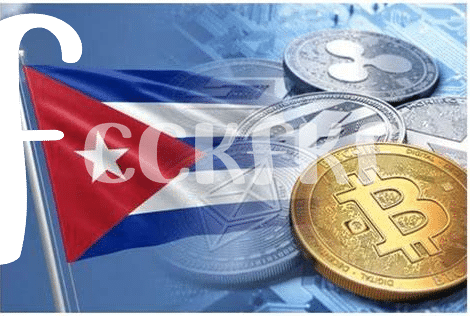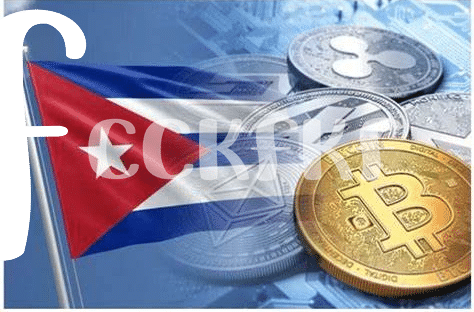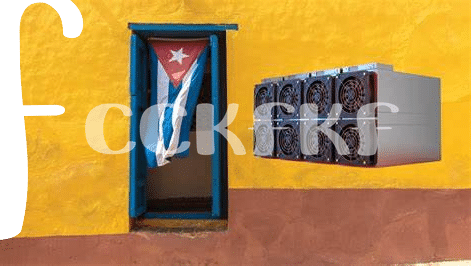Bitcoin’s Adaptation in Cuba 🇨🇺

In recent years, digital currency has quietly made its way into the fabric of Cuba’s economy, presenting a new avenue for transactions and financial interactions. Despite the challenges of limited internet access and strict government control, Bitcoin has been gradually gaining traction among tech-savvy Cubans looking for alternative means of exchange. The decentralized nature of Bitcoin offers a level of financial autonomy previously unseen in Cuba, where traditional banking services may be unreliable or inaccessible to many. This adaptation signifies a shift towards a more inclusive and innovative financial landscape in Cuba, signaling the potential for a gradual integration of cryptocurrency into daily economic activities.
Challenges of Using Bitcoin 💰
Bitcoin offers a promising alternative currency in Cuba, yet its adoption comes with challenges. The decentralized nature of Bitcoin, while providing financial freedom, also poses hurdles in a controlled economy like Cuba’s. Limited internet access and regulatory restrictions make it difficult for the average Cuban to fully utilize Bitcoin’s potential as a means of transaction. Additionally, the volatile nature of Bitcoin prices can create uncertainty for individuals depending on the digital currency for their financial needs.
Despite these challenges, the use of Bitcoin in Cuba has the potential to bring about significant positive changes in the country’s economy. By embracing innovative financial solutions like Bitcoin, even in a controlled environment, Cuba could experience increased financial inclusion and access to global markets. This shift towards digital currencies can pave the way for greater economic resilience and empower individuals who may have been previously marginalized by traditional banking systems.
Potential Impact on Cuba’s Economy 📈

Bitcoin adoption in Cuba has the potential to significantly impact the country’s economy. As a decentralized digital currency, Bitcoin offers Cubans a way to conduct transactions beyond the limitations of their controlled economy. This alternative form of money could provide avenues for economic growth, financial empowerment, and increased access to global markets. By incorporating Bitcoin into their daily financial activities, Cubans may experience greater financial freedom and opportunities for innovation. However, challenges such as regulatory issues and technological barriers need to be addressed for Bitcoin to truly make a positive impact on Cuba’s economic landscape.
Innovation in a Controlled Environment 🌐

Bitcoin’s disruptive potential doesn’t shy away even in tightly controlled environments like Cuba. The innovation sparked by leveraging Bitcoin within Cuba’s regulated economy is nothing short of revolutionary. The intricate dance between technology and governmental restrictions opens up a realm of possibilities, challenging the traditional norms of financial transactions. This fusion of innovation and regulation creates a unique landscape where the digital currency can thrive, pushing boundaries and unlocking new opportunities in unexpected ways.
In such a controlled environment, the adaptability and resilience of Bitcoin shine through, offering a beacon of hope for financial empowerment and autonomy. As Cuba navigates the complexities of its economy, the digital currency presents a path towards innovation that transcends boundaries, paving the way for a future where financial freedom knows no limits. Learn more about the impact of foreign exchange controls affecting Bitcoin in the Dominican Republic on WikiCrypto.
Bitcoin as a Tool for Financial Inclusion 🤝
Bitcoin has the potential to serve as a catalyst for financial inclusion in Cuba, offering a way for individuals without access to traditional banking services to participate in the economy. By using Bitcoin as a means of transacting, individuals can overcome barriers to financial services, such as high fees and limited access to banking infrastructure. This opens up opportunities for small businesses and individuals to engage in economic activities, fostering greater participation and empowerment within the community.
Moreover, Bitcoin’s decentralized nature provides a level playing field for all participants, irrespective of their background or financial status. This inclusivity can help bridge the gap between the unbanked population and mainstream financial systems, promoting greater economic equality and access to economic opportunities for all individuals in Cuba.
Future Possibilities and Considerations 🚀

As Bitcoin continues to gain traction in Cuba’s controlled economy, the future possibilities and considerations for leveraging this alternative currency are vast. With its decentralized nature and potential to combat financial exclusion, Bitcoin could provide a pathway for economic empowerment among Cuban citizens. However, the challenges of regulatory frameworks and the need for infrastructure development must be carefully navigated. As innovations in technology evolve, the integration of Bitcoin in Cuba’s economy may lead to increased financial access and opportunities for growth. It is essential to monitor the ongoing developments and adaptations to ensure a sustainable and inclusive financial ecosystem for the future.
Foreign exchange controls affecting Bitcoin in Djibouti
